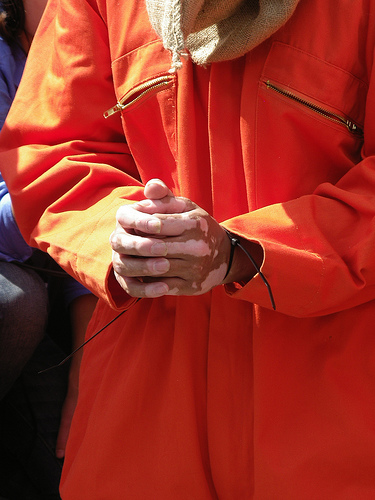 AMERICAN PROSPECT– Two weeks ago, Noor Uthman Mohammed sat in the same high-security
military-commissions courtroom at Camp Justice, Guantánamo Bay, that was
built to hold the trial of Khalid Sheik Mohammed and the other
September 11 defendants.
AMERICAN PROSPECT– Two weeks ago, Noor Uthman Mohammed sat in the same high-security
military-commissions courtroom at Camp Justice, Guantánamo Bay, that was
built to hold the trial of Khalid Sheik Mohammed and the other
September 11 defendants.
Clad in the white garments of a detainee who has had no recent “discipline” problems, Mohammed stroked his gray-flecked beard as the judge, Navy Cpt. Moira Modzelewski, set the next hearing for August. Mohammed’s presumptive trial date is in February 2011, nearly a decade after his 2002 capture in Pakistan alongside Abu Zubaydah. Zubaydah is perhaps best known as the first detainee to be subjected to waterboarding by the Bush administration.
Mohammed is one of the lucky ones. He is, after all, among the 35 Guantánamo detainees getting a trial and not one of the 50 the administration says are “too dangerous to release” but can’t be tried. His lawyers — while frustrated with the pace of the proceedings — are nonetheless relieved by the changes made to the military commissions.
“There are significant improvements both in terms of procedure, rights available, and rights to resources, in particular in death-penalty cases,” says Mike Berrigan, principal deputy chief defense counsel for the Office of Military Commissions. “But there’s a large hill to climb.” The size of that hill will become apparent in the coming weeks as reporters from all over the world descend on Guantánamo for the initial hearings in the case of Canadian national Omar Khadr, who was captured in Afghanistan in 2002 at the age of 15.
Howard Ross Cabot, a civilian attorney who is a part of Mohammed’s defense team, agrees. “Often times I read a lot of critical things about Guantánamo. It’s not that it’s great, but when you compare where we are today to where they were in 2002, 2003, 2004, we’re moving ahead,” Cabot says.
None of this is supposed to be happening. Barack Obama was elected having rejected the national-security policies of the Bush administration as a “false choice between security and liberty.” Just days after his inauguration, Obama signed an executive order mandating that the prison at Guantánamo Bay be closed within a year. Mohammed’s is the first of the new military-commission hearings to occur since that promise was broken. With the administration waffling on its original decision to try the 9-11 defendants in civilian court, the high-security courtroom where Mohammed’s hearing took place may yet serve its original purpose.
In the meantime, the ongoing existence of the detention camp at Guantánamo Bay stands as a poignant symbol of the Obama administration’s failure to reverse the trajectory of U.S. national-security policy and of its ultimate decision to embrace the core framework of the Bush administration’s “war on terror.” The military commissions, for example, are fairer. They ban evidence gained through torture, put the burden on the government to argue that hearsay evidence is reliable, (in the past, the presumption went in the other direction), and now require judges to use virtually the same standards as civilian courts in evaluating classified evidence — all reforms put in place by the 2009 Military Commissions Act.
Continue reading about the Kinder, Gentler Gitmo.
© AMERICAN PROSPECT, 2010
Photo by flickr user Art Makes Me Smile










